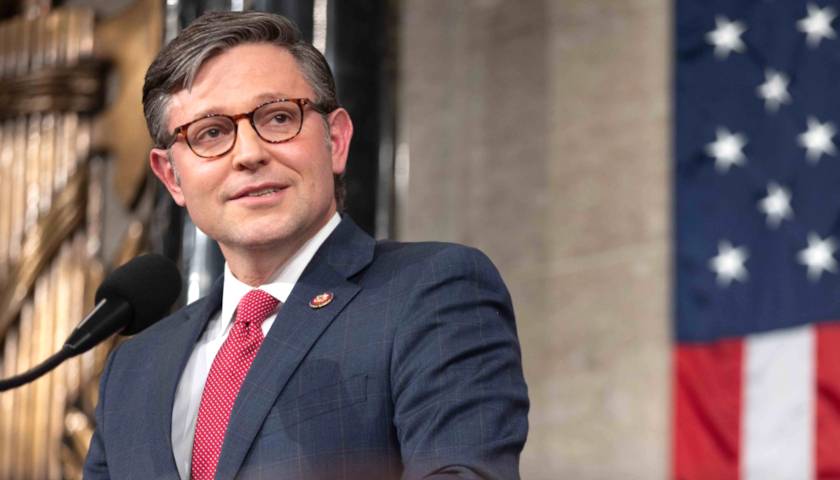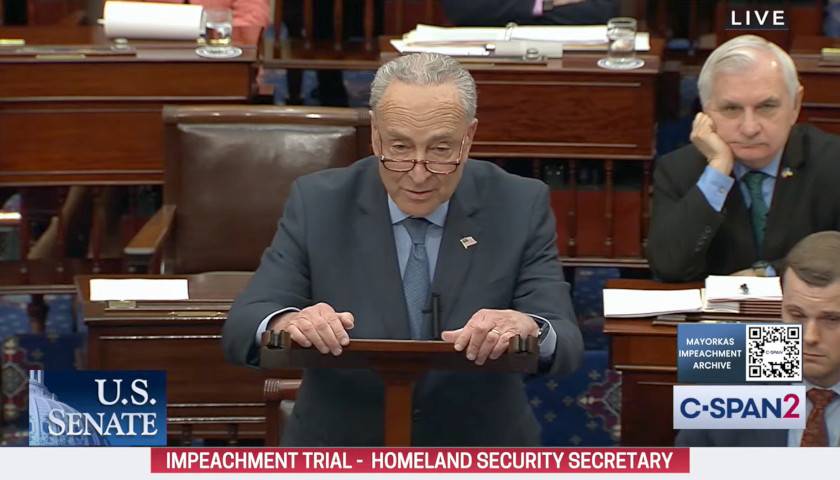by Bethany Blankley
Texas Attorney General Ken Paxton sued the Biden administration again Thursday, this time for requiring federal contractors to pay a $15 an hour minimum wage. It’s the 21st lawsuit the attorney general has filed against the administration. Joining him are the attorneys general from Louisiana and Mississippi.
“The president has no authority to overrule Congress, which has sole authority to set the minimum wage and which already rejected a minimum wage increase,” Paxton argues.
Their lawsuit follows one filed last December by the Pacific Legal Foundation on behalf of outdoor adventure guides, Arkansas Valley Adventures (AVA), a licensed river outfitter regulated by the Colorado Division of Parks and Wildlife, and the Colorado River Outfitters Association (CROA). The CROA, a nonprofit trade association, represents more than 150 independent operators who primarily conduct business on federal lands using special use permits through Forest Service or Bureau of Land Management.
They argue the requirement amounts to “an executive power grab to force a social agenda through federal contractors.”
At issue is a U.S. Department of Labor final rule issued Nov. 16, 2021, in response to an executive order President Joe Biden issued April 27, 2021. The order is similar to one issued by former President Barack Obama in 2014.
The rule change increases the hourly minimum wage for employees performing work on or in connection with federal contracts to $15 beginning late last month, Jan. 30.
It also eliminates the tipped minimum wage for federal contract employees by 2024, ensures a $15 minimum wage for workers with disabilities performing work on or in connection with federal contracts, and imposes minimum wage requirements on outfitters and guides operating on federal lands.
“President Biden has attempted to arrogate to himself the authority to impose sweeping changes on American society with little more than the stroke of a pen,” the attorneys general argue in their complaint. “In pursuit of partisan political objectives, Defendants are unilaterally attempting to impose a radical policy – a dramatic and rapid increase in the minimum wage for federal contractors – with little apparent regard for the widespread havoc on the economy that will result.”
Both lawsuits name Biden, Labor Secretary Marty Walsh and the U.S. Labor Department, and its Wage and Hour Division and administrator, as defendants.
In defense of the rule, Walsh told reporters, it “makes progress towards reversing decades of income inequity.”
The DOL maintains that raising the minimum wage “enhances worker productivity and generates higher-quality work by boosting workers’ health, morale, and effort; reducing absenteeism and turnover; and lowering supervisory and training costs.”
Once the rule is fully implemented, the DOL projects 327,300 out of the 1.8 million potentially impacted workers will see a pay increase.
But AVA argues that it, and other companies like it, could go out of business, creating a rippling effect of direct and indirect lost jobs.
AVA, which provides a full range of outdoor experiences year-round, including guided, multi-day river rafting wilderness trips in the summer, isn’t a federal contractor and never has been. But because it holds a special land use permit to operate on federal lands, it’s subject to the requirement. It argues it’s wrongly being included in a federal contractor category, forcing it “to adopt a wage model that is fundamentally incompatible with the way that the guiding industry operates.”
The Trump administration understood the distinction, it argues in its complaint, which in 2018 gave it an exemption from the Obama-era mandate.
Obama’s mandate didn’t “promote economy and efficiency in making these services available to those who seek to enjoy our Federal lands,” the exemption held, according to PLF’s complaint. Instead, it “threatens to raise significantly the cost of guided hikes and tours on Federal lands, preventing many visitors from enjoying the great beauty of America’s outdoors.”
In order to comply with the rule, AVA would be forced to cut the length and type of trips its guides offer, cut their hours, or radically increase fees. Being forced to pay $15 an hour for multiple 24-hr day trips could effectively end them. The trips are a major source of AVA’s business, which if cancelled, could put them out of business altogether. The same would be true for CROA’s members.
The DOL estimates the rule change will impact more than 500,000 private firms, including approximately 40,000 that provide concessions or recreational services requiring special use permits or licenses on federal lands. It also estimates it will result in the transfer of income “from employers to employees in the form of higher wage rates” of “$1.7 billion per year over 10 years.”
But the “average annualized direct employer costs are estimated to be $2.4 million” for each firm, an “economically significant” amount, the Office of Information and Regulatory Affairs determined, the PLF lawsuit notes.
And the Congressional Budget Office, “has recognized that changes in the minimum wage can lead to reductions in employment, increased costs of goods, inflation, and decreased consumption,” the attorneys general argue. “States will be burdened with higher unemployment benefits claims and a deteriorating economy, and young, less educated workers could bear the brunt of this economic disaster. With this knowledge, Congress has repeatedly rejected a $15-per-hour federal minimum wage.”
The DOL acknowledges in its 348-page rule that once it’s implemented it will increase compliance costs, consumer costs, reduce profits and result in “disemployment” for some companies.
The PLF maintains that the president doesn’t have the constitutional authority to regulate minimum wage, only Congress does.
“Only Congress can make law setting minimum wages,” PLF attorney Caleb Kruckenberg said. “The president can’t establish a minimum wage through administrative fiat. The Constitution says that only Congress can make laws that bind the public.”
Even after the PLF’s lawsuit was filed last December, the DOL’s Wage and Hour Division had already begun holding virtual compliance seminars and interactive webinars for contracting agencies, contractors, unions, workers and other stakeholders to learn how to comply with the new rule.
– – –
Bethany Blankley contributes to The Center Square.




